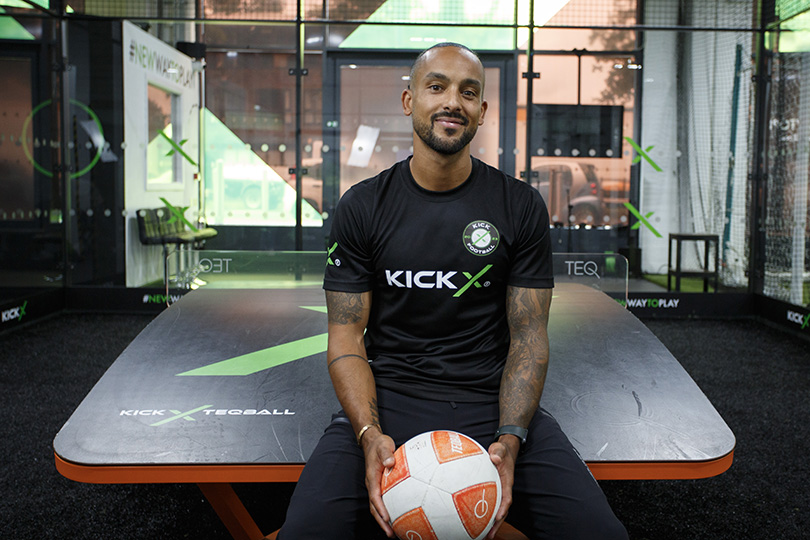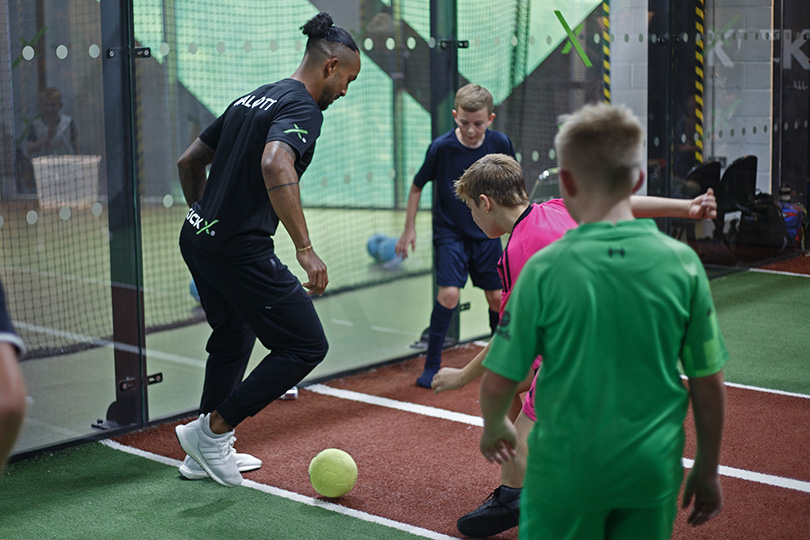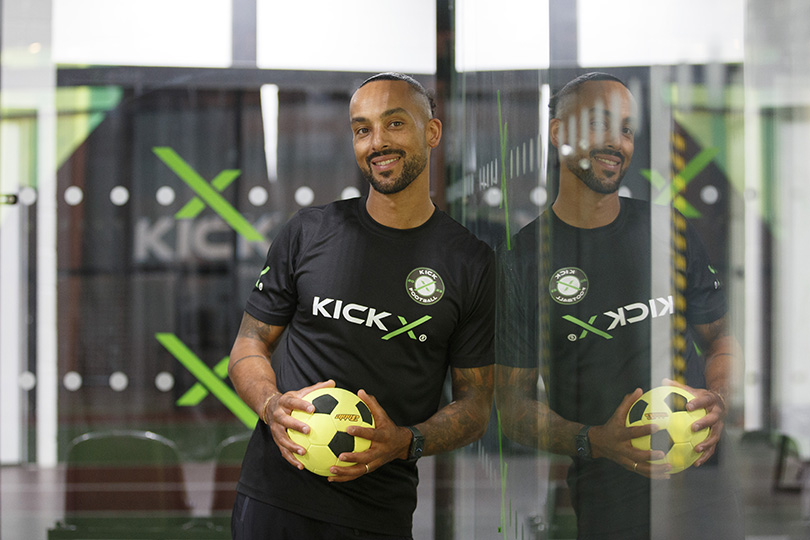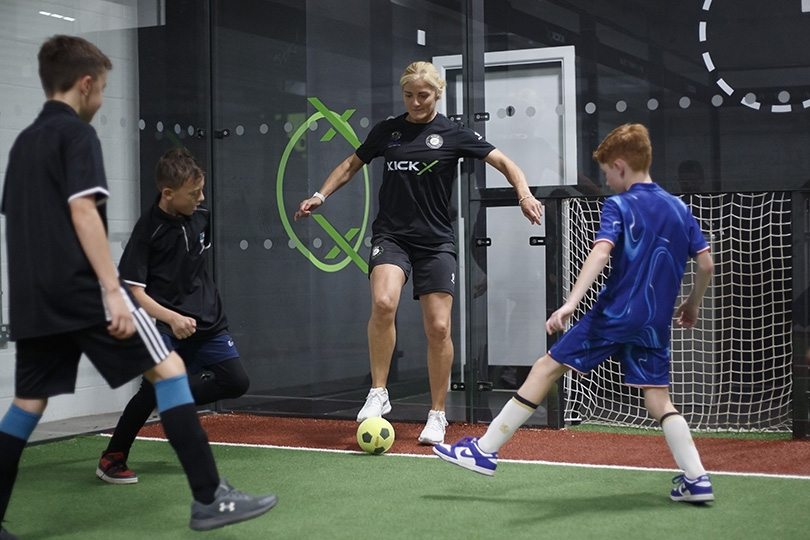
Theo Walcott announced his retirement from professional football 13 months ago – now he’s explained to FourFourTwo why he’s made a surprise investment in the world of padbol and jorkyball.
The former Arsenal and England winger has put money into a new arena in the Surrey town of Addlestone, which hosts a number of small-sided hybrid football events, with aims of replicating the venue in other places across the country.
Among the hybrid events played at the KickX arena are padbol (a fusion of football, squash and tennis), jorkyball (a blend of football, roller hockey and squash), teqball (a mix of football and table tennis), plus panna (an indoor version of street football). Matches are often played as two versus two on small-sided courts, not dissimilar to a squash court, and are aimed at both children and adults too.
Theo Walcott is bringing back childhood memories
“When I first came here, I wanted to find a space for my son’s birthday,” Walcott told FFT, during his latest visit to the Addlestone venue this week. “He loves football, he was turning seven and I felt the energy and the fun that it provided for my son. As well as that, it was what it made me feel like – it made me feel like a kid again.
"It brought back memories of my childhood, of just playing for fun. That’s the one thing we go away from at times, just doing things for fun.”

Walcott hopes the sports can continue to grow, just as hybrid tennis event padel has grown in recent years, and also help youngsters improve their technique, benefiting them in football, too.
“One of my son’s favourites is panna, which is one on one, trying to nutmeg players,” the 35-year-old said.
“You see these players now who have great technique – they want to do skills, they want to beat people and beat people again. That’s what panna is about. Padbol is all about your first touch, a bit like padel with your feet. A lot of players use that as a bit of a warm-up for training. Teqball is another one.
“It doesn’t really matter what level you’re at or what age you are, it brings energy and excitement, and that’s why I wanted to be part of it.
“As a youngster, I used to mark out a grass patch with shoes, playing with bare feet in front of the garden, but there were cars around.
“This is a safe environment, the people are friendly, you get to meet new people and there’s no pressure, but it’s also competitive, which is not a bad thing – you need a bit of that.
“It’s a step in the direction of other cultures like Spain and Italy where they’re gifted technicians as players. It’s all about the next generation from the grass roots.”

Fellow former Arsenal star Katie Chapman won 10 FA Cups and 94 England caps as a player – she retired in 2018, but has now taken up padbol and represented the UK at the Padbol World Cup in Brazil at the end of last year.
“Going to experience that World Cup in Brazil was unbelievable,” the 42-year-old told FFT.
“Just seeing different countries at different stages – some had been playing for a long time, we’d only been playing for months when we went over there, but we learned so much and they were so open and willing to help us, because they want the sport to grow.
“When we used to train as footballers, we played head tennis and it’s a similar concept, but with this you score it as tennis – 15, 30, 40, deuce.
Overhead kicks and cartwheels
“For me it was exciting learning a different game with different rules and different tactics. It’s two versus two and a lot of the people in Brazil were doing things like overhead kicks to get the ball back over the net, like a cartwheel.
“Because I played football at such a high level, coming out of the game, I missed it terribly, and finding somewhere where you can play at the same level was really difficult, especially as a female. I played five-a-side with a lot of men who just played for the fun of the game.
“With padbol, you can play two versus two and you play at the intensity you’re at, and find someone who’s at your level to play with.
“You can practise your touch and improve your technique – the ball spins off the glass, so you have to adapt and move your body shape, which makes you really instinctive. It’s really relevant stuff to the skills you need in football.”

Vik Sharma is the arena’s co-founder and CEO. “This is our first arena, our plan is we open more around the country, then we look at the rest of the world after that,” he explained.
“The idea was to bring something different to football. There have been a lot of modifications to sports – T20 and the Hundred in cricket, rugby sevens, padel tennis is now big.
“I felt football could be innovated, modernised, broken up into chunks, and that’s what we’ve done – we’ve taken football and looked at it differently.
“From age five where you can kick a ball around, right through to 85, we’ve had both ends of that spectrum, all abilities, all sexes, all races.
“These formats are currently the ‘play phase’ – come in and try it, then the next route is the ‘compete phase’, where we find a core following of players who want to take it more seriously, and for them there’s a really exciting journey. There are international tournaments and they can really progress their game.
“Once we’ve got enough courts around the country, in padbol for example, we want to start holding national championships. Then we’ll send the best players to different countries to play in World Cups and Euros.”







